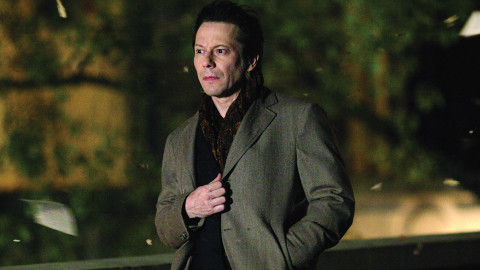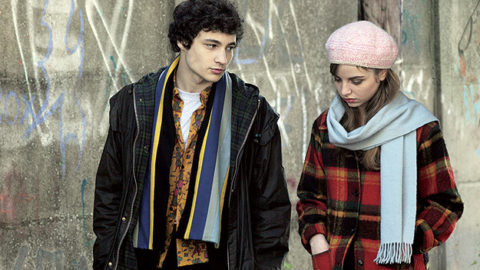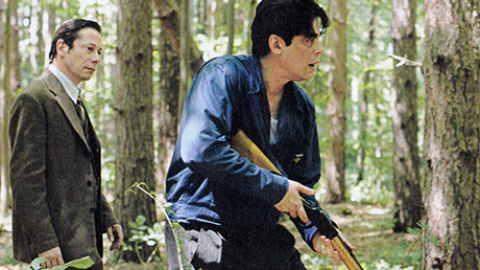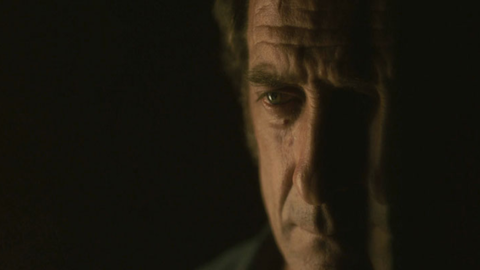By Yonca Talu in the March-April 2018 Issue
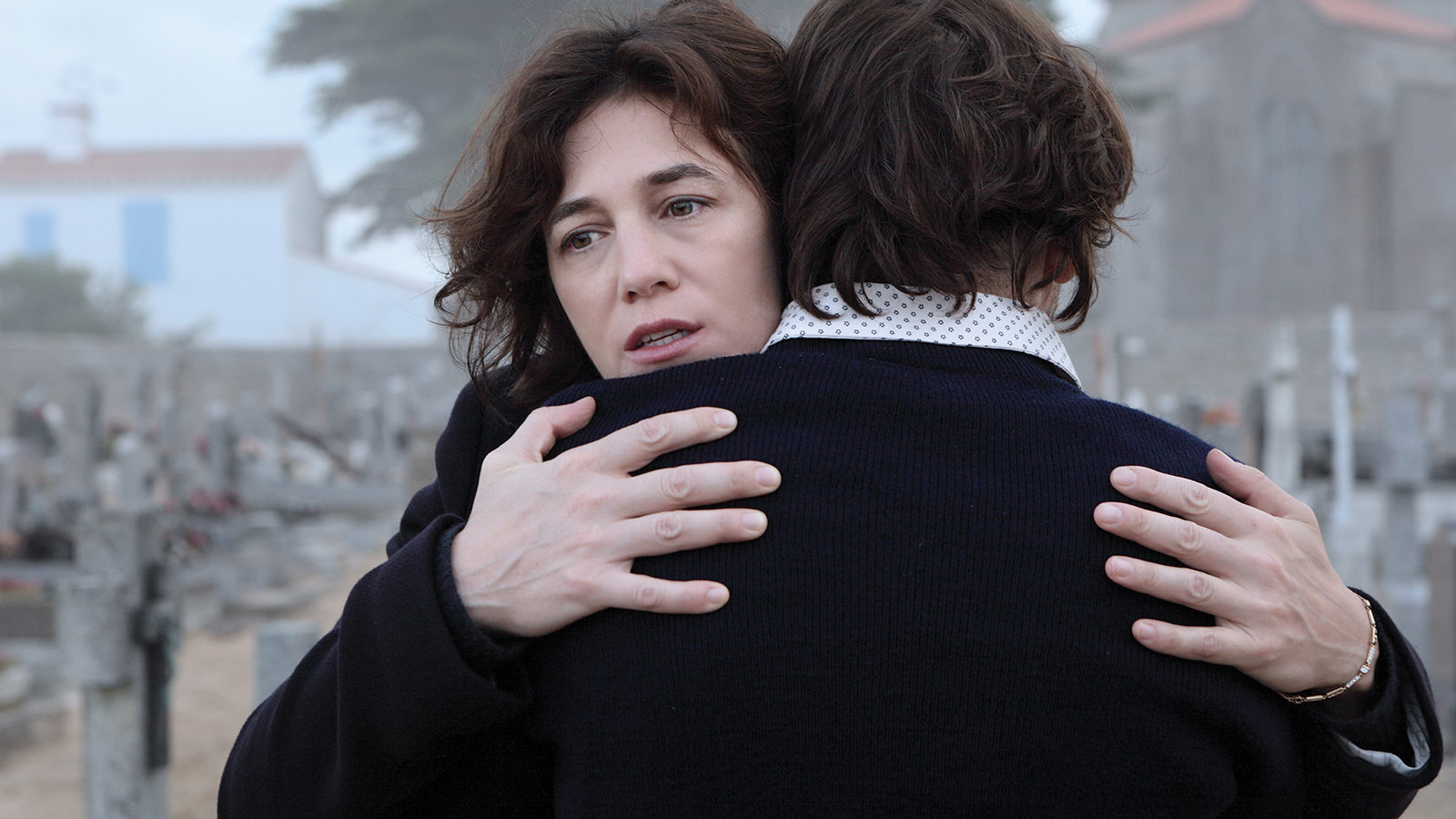
Review: Ismael’s Ghosts
(Arnaud Desplechin, France, Magnolia Pictures, Opening March 23)
A narrative patchwork alternating between a Hitchcockian ghost mystery, a Cold War espionage satire, and a Fellini-esque nightmare of midlife creative block, Arnaud Desplechin’s frenetic follow-up to the ethereal and sensitive coming-of-age romance My Golden Days (2015) represents as much a deliberate revival of the idiosyncratic French auteur’s cinematic obsessions as a liberating move away from them. Formally mirroring the paranoid, hypervigilant consciousness of sleep-deprived, distraught filmmaker Ismael Vuillard (Mathieu Amalric)—a doppelgänger of 2004’s genre-bending Kings and Queen’s manic-depressive protagonist also played by Amalric—the director’s latest psychological experiment chronicles the disconcerting effects of the sudden reappearance of Ismael’s long- vanished, presumed dead wife Carlotta (Marion Cotillard) on his romantic and professional life. Taking her name from the enigmatic ancestor who haunts Kim Novak’s suicidal Madeleine in Vertigo (1958), Carlotta casually shows up at Ismael’s beach house one placid morning, returning from the grave in an eerily disquieting twist reminiscent of Robin Campillo’s zombie drama They Came Back (2004), and demands her husband back: she’s unconcerned with the fact that he has moved on in the two decades following her departure and is now settled into a gratifying relationship with fragile, caring astrophysicist Sylvia (Charlotte Gainsbourg).
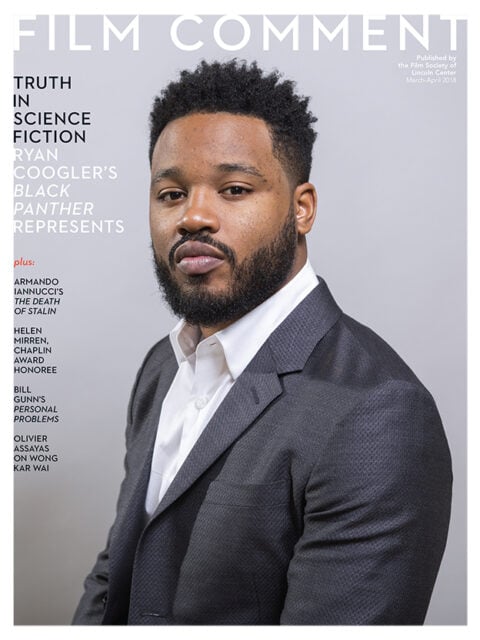
From the March-April 2018 Issue
Also in this issue
Unlike My Golden Days, Ismael’s Ghosts does not unfold in the land of memory, and though it remains intimately concerned with the ways in which the past continues to inform and reverberate through the present, it is ultimately meant as a celebratory gesture rooted in the here and now rather than a mournful, elegiac meditation on what could have been and was lost. As always with Desplechin, the film rests on the duality of life and death: although a specter emerging from oblivion and bringing along unwanted painful memories, Carlotta quickly reveals an insatiable lust for living, simultaneously embodying and dispelling the existential angst that permeates the title with her passionate, reckless spontaneity and penchant for pleasure. Drawing on a lithe, pastel-hued palette and delicate, unobtrusive camerawork, Desplechin movingly portrays the contrasting facets of her character in two sensuous moments driven by Cotillard’s expressive silent performance: Carlotta weeping under the shower the night of her return in a kind of spiritual cleansing and provocatively dancing to Bob Dylan’s “It Ain’t Me Babe”—a hybrid choreography by Philippe Garrel collaborator Caroline Marcadé—before a dazzled and threatened Sylvia the next day. At once opposite and complementary, these scenes epitomize the film’s theme of self-reinvention through embracing the moment.
But phantoms do not just present themselves in the form of characters in Ismael’s Ghosts. With his choice of actors and self-referential storytelling, Desplechin summons the spirits of cinema into his film. While encapsulating his own cinematic history in his seventh collaboration with Amalric, a perpetual surrogate for himself, the filmmaker also invites associations through casting Cotillard and Gainsbourg as Ismael’s love interests, as well as Louis Garrel as his alienated brother, the half-real, half-imaginary Ivan Dédalus, whose exploits as a diplomat make up the subject of Ismael’s new script. Viewed through the lens of their past selves, Cotillard and Gainsbourg’s characters acquire a poignant edge of innocence: when watching the two women’s more vulnerable moments in Ismael’s Ghosts, it is difficult not to think back to the former’s ghostly appearance as a teenage object of desire for Amalric’s character in Desplechin’s My Sex Life… or How I Got Into an Argument (1996) and the latter’s breakthrough role as a sensitive, embittered 13-year-old in Claude Miller’s L’Effrontée (1985). Similarly, Garrel’s presence evokes the memory of his grandfather Maurice Garrel, whose character in Kings and Queen had a grim, spectral quality in his own right. As for Desplechin himself, Ismael’s dismissal of Carlotta perhaps signals a new, stimulating direction in his filmography.
Yonca Talu is a filmmaker living in Paris. She grew up in Istanbul and graduated from NYU Tisch.



